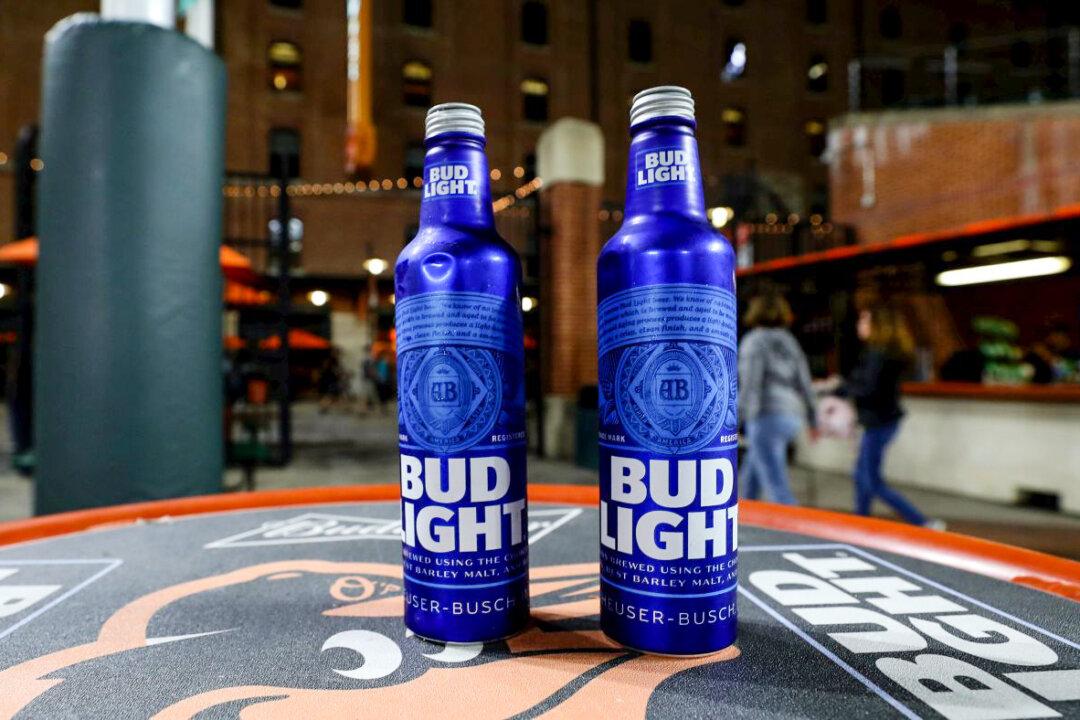New industry data show that sales of Bud Light have declined for another week amid the controversy over the company’s decision to engage in a social media campaign with transgender influencer and activist Dylan Mulvaney.
In the week starting on May 8, U.S. retail sales decreased by 28 percent compared with the same period a year ago, according to an analysis of Nielsen data by consulting company Bump Williams. That’s an even bigger slide than the 23.6 percent plunge in sales for the week ending May 6, compared with the same week a year ago.





